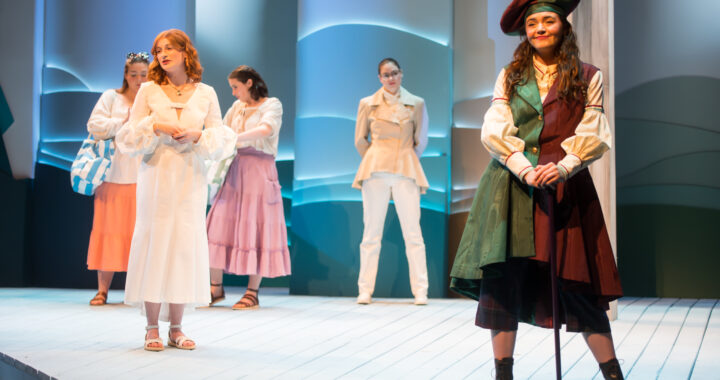Thursday poems amuse and inform
2 min readBy NICOLE CONTRINO
The audience in the Combs 139 lecture hall chuckled as Marie McAllister, professor of English, read comic restoration poems on sex and marriage as a part of the Thursday Poem Series.
Each Thursday at 5 p.m., students and professors flood into the classroom to listen to different poems read by professors, students or special guests.
On the Thursday, Sept. 12 poetry reading, McAllister read a collection of 26 different poems, ranging from John Dryden and Charles Cotton to Aphra Behn and Catherine Phillips.
For 30 minutes, McAllister kept 21 students and three professors laughing with her poetic sex references.
However, the occasion was not all fun and games. McAllister was also there to teach. One special focus was the new vocabulary she introduced to the crowd.
“Sport,” McAllister said, “does not refer to athletics. It means sexual sporting in this time period.”
Many students attend the readings for classes, as evidenced by vigorous writing in notebooks.
“It’s a chance to reflect on what I am learning in class, and if you are in creative writing, you have to study and gain experience in order to be able to write better,” said senior English major Liz Barnes.
McAllister read one poem that she joked sounded similar to men of the 21 century. In “Upon Leaving His Mistress,” poet John Wilmot wrote about leaving his mistress for the good of her sake, writing, “live up to my mighty mind; / And be the Mistress of Mankind.”
Wilmot, perhaps like men nowadays, as McAllister joked, said he left his mistress in order to do better by her, not because he wanted to. Some things never change no matter what time period you are in, McAllister noted.
Although students may not understand every word from the poetry reading, McAllister did her best to make it humorous in many ways. She even stopped at one point and said she should be singing the poems to the audience, since most were set to music.
However, sophomore English major Jenni Sherba followed along easily.
“Since I take McAllister’s class, and I am familiar with the style, it was easy for me to follow the language and made some of the poems even more funny,” Sherba said.
Poetry may not be to everyone’s liking but Thursday Poems offer a variety for all audiences so students can experience live poetry routinely.
“It is more important that poetry is spoken and not just read. It is an important aspect of the medium,” Sherba said.











